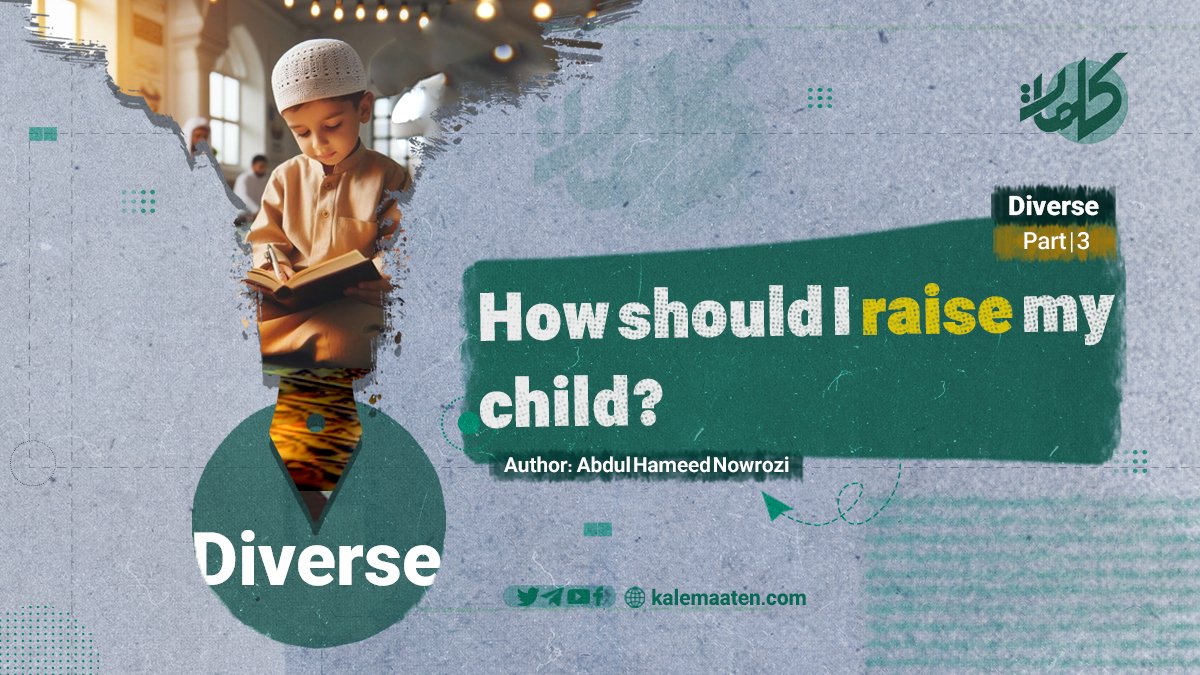
Author: Abdul Hameed Nowrozi
How Should I Raise My Child? (Part Three)
Primary Education of Children
Some of our elders believe that it is not right to put the burden of education on children before the age of seven. Before this age, their upbringing and education should be addressed while they are playing and having fun; however, it is not appropriate to formally educate and train them before this age.
Today, one of the misconceptions that has spread like a plague in society is that when a child turns three, they must start focusing on lessons and homework, which is fundamentally wrong. The right approach is to teach three-year-old child basic concepts, such as the words of monotheism and some teachings of Islam; however, it is not advisable to send them to kindergarten as compulsory students.
Paying Attention to Children in the First Six Years of Life
The first stage of a child’s life, specifically the first six years, is one of the most important and critical periods; during this time, the child’s structure and personality are significantly influenced. What takes root in the child’s mind at this age will have a lasting impact on their growth and development, often evident when they reach adulthood. Parents and educators should pay special attention and care to their children during this period and observe the following points:
1. Love for the Child from the Parents, Especially the mother
It is imperative that the child learns to love others. If they do not feel such love, a selfish child may emerge, becoming unloving and indifferent to others. A Muslim mother must understand her child’s needs and ensure nothing prevents her from showing love and affection and taking good care of her child; if she fails in this matter, she may jeopardize the child’s overall well-being and lead them toward corruption. The love and affection that Allah, in His wisdom and mercy, has placed in a mother’s heart should meet the needs of her child. Therefore, the mother must be diligent and sensitive about this responsibility; nothing—whether work outside the home or disputes with her husband—should hinder her from fulfilling this duty.
2. Getting the Child Used to Discipline, especially in the Early Months of Life
This task should not be seen as difficult or impossible, as it has been proven feasible to teach children to breastfeed or defecate at specific times. This helps the child’s body become accustomed to discipline and regularity. Such practices will grow alongside the child until they develop the strength to manage their needs and desires in the future.
3. Parents Should Be Good Role Models for Their Children
Parents must commit to the Islamic method in all their affairs, especially in interactions with their children, observing Islamic manners completely and avoiding mistakes in front of the child. Parents should not underestimate the child’s ability to notice and understand their surroundings; these experiences significantly influence the child’s psyche. The child’s capacity for observation and absorption is often much greater than what we typically acknowledge.
While it is true that the child may not comprehend everything they see, they are nonetheless affected by it. The baby possesses two very sensitive systems: 1. The receiving and collecting system; 2. The expressing and communicating system. Babies receive and collect information, often imitating everything they see or hear around them, regardless of their full understanding or awareness.
Continues…


